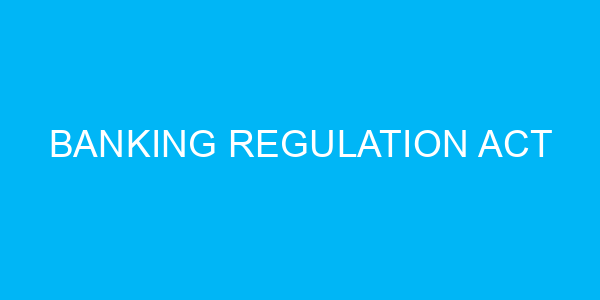46. The Banking Regulation Act, 1949 empowers the central government to make rules and regulations for the:
a) Licensing of banks
b) Promotion of rural development
c) Regulation of foreign exchange transactions
d) All of the above
47. The Banking Regulation Act, 1949 protects the interests of depositors by providing them with powers to:
a) Inspect bank books of accounts
b) Withdraw their deposits in case of emergency
c) Appoint auditors to review bank practices
d) All of the above
48. The Banking Regulation Act, 1949 prohibits a banking company from making loans against its own shares or the shares of its holding company without the prior approval of the:
a) Ministry of Finance
c) Indian Banks’ Association
d) Central government
49. Under the Banking Regulation Act, 1949, a banking company cannot be wound up voluntarily without the prior approval of the:
a) Ministry of Finance
b) Reserve Bank of India
c) Indian Banks’ Association
d) Central government
50. The Banking Regulation Act, 1949 empowers the Reserve Bank of India to authorize any banking company to undertake banking business in any part of India, subject to fulfillment of certain conditions and requirements. This authorization is known as a:
a) Banking license
b) Branch expansion approval
c) Regional banking permit
d) Banking charter




